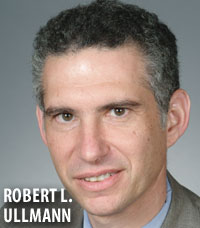Two recent cases dealing with the use of outside counsel for internal corporate investigations — including one involving the international law firm Proskauer Rose — underline the dangers of representing a company and one of its employees at the same time.
“It is a big area of concern,” said Jamison J. Barr, general counsel and vice president of Jenzabar Inc. in Boston. Even as in-house counsel, Barr said that whenever an executive at his company has an issue, he makes it his practice to tell them: “I represent the company. I’m sorry, I can’t help you.”
To avoid malpractice liability and disciplinary sanctions, a number of legal ethicists say outside counsel should be vigilant in providing employees “corporate Miranda” warnings to avoid conflict problems when conducting internal inquiries.
The warnings should include a statement that the lawyer represents the corporation and not the employee. In addition, they should clearly state that the corporation can waive any privilege it might have and provide information to the government without the employee’s consent.
“The principles are old and familiar, but in the wake of Enron and WorldCom and any number of other corporate scandals, there is no question we are seeing increased scrutiny in today’s environment,” said Richard M. Zielinski, a legal-malpractice specialist at Goulston & Storrs in Boston. “These kinds of investigations are happening with greater frequency, and the lesson for the lawyer is they need to understand that the burden is on them to make clear who they represent and who they don’t represent.”
Douglas E. Cornelius, chief compliance officer at a real estate private equity firm in Boston, said that conflict-of-interest problems are surfacing as a result of an up-tick in shareholder litigation in Massachusetts and across the country.
“Whenever there is a downturn in the market, you have a wave of litigation that comes out of it,” he said. “We’re clearly now in that next wave. Stuff is collapsing, investigations are happening, and what we’ve seen in the last few months is that mistakes are being made.”
Law firm gets slapped
The lawyers’ warnings come in the wake of two high-profile cases in which attorneys and their firms found themselves on the proverbial hot seat for allegedly failing to adequately spell out to employees the precise role they were playing in internal investigations.
On March 27, an executive from the Stanford Financial Group sued Proskauer Rose’s Thomas V. Sjoblom on grounds that the lawyer’s conduct prompted her to speak with the Securities and Exchange Commission.
The executive, who was eventually indicted, claimed that she thought Sjoblom was her attorney. In her suit, she alleged that he never advised her of her Fifth Amendment rights or privilege against self-incrimination.
Sjoblom, who works in the firm’s New York and Washington, D.C., offices, could not be
reached for comment prior to deadline.
A week later, a federal judge in California referred a law firm to the state disciplinary association after finding that attorneys hired by Broadcom Corp. had failed to properly advise a company CFO that they did not represent him.
“The Rules of Professional Conduct are not aspirational,” wrote U.S District Court Judge Cormac J. Carney. “The court is at a loss to understand why [the firm] did not comply with them here. Because [the firm’s] ethical misconduct has compromised the rights of [the CFO], the integrity of the legal profession and the fair administration of justice, the court must refer [the firm] to the state bar for discipline.”
Cornelius said it is not often that one sees a judge “slap a law firm like that.”
A former Goodwin Procter lawyer who has blogged about both the Stanford and Broadcom cases, Cornelius added that the legal concepts involved in both investigations apply the same across the country.
“You have to make clear from the get-go who you represent,” he said, “and as Judge Carney said, it’s malpractice if you don’t.”
‘That’s what warnings are for’
As soon as a law firm is retained by a corporation, outside counsel should sit down and interview employees, said Robert L. Ullmann, a corporate lawyer at Nutter, McClennen & Fish in Boston.
Where many of those conversations happen early in an investigation before all the facts are known, Ullmann said Massachusetts’ Rules of Professional Conduct state that warnings must be given any time it is clear a corporation’s interests are adverse to an employee’s.
While a strict reading of the rules might seem to limit the circumstances under which the warnings are necessary, Ullmann said the Stanford and Broadcom cases prove why they should be given as a matter of course.
“Those two cases are cautionary tales for every lawyer that does this kind of work that you have to give these warnings to everyone, and when you talk to employees they have to know whether or not you’re their lawyer,” he said. “These investigations are often very fast-paced and sometimes lawyers are concerned that giving warnings may make the employee reluctant to talk, but of course that’s what the warnings are for.”
Corporate litigator Edward J. Naughton, of Boston’s Brown Rudnick, said he always makes sure he has another witness present in the event there is ever a dispute about the manner in which the warnings were issued. Especially with less-experienced lawyers, he said there is a tendency to downplay the importance of the warnings when talking with employees.
“A lawyer may try to not state them so emphatically to try to win over the witness by suggesting they are all on the same team,” he said. “But the [Stanford and Broadcom] cases show that can be extremely dangerous. It’s pretty clear from the two cases that courts and individuals are taking very seriously the obligation to make abundantly clear who you represent. No one wants to be in the position those lawyers are in.”
 New England Biz Law Update
New England Biz Law Update

